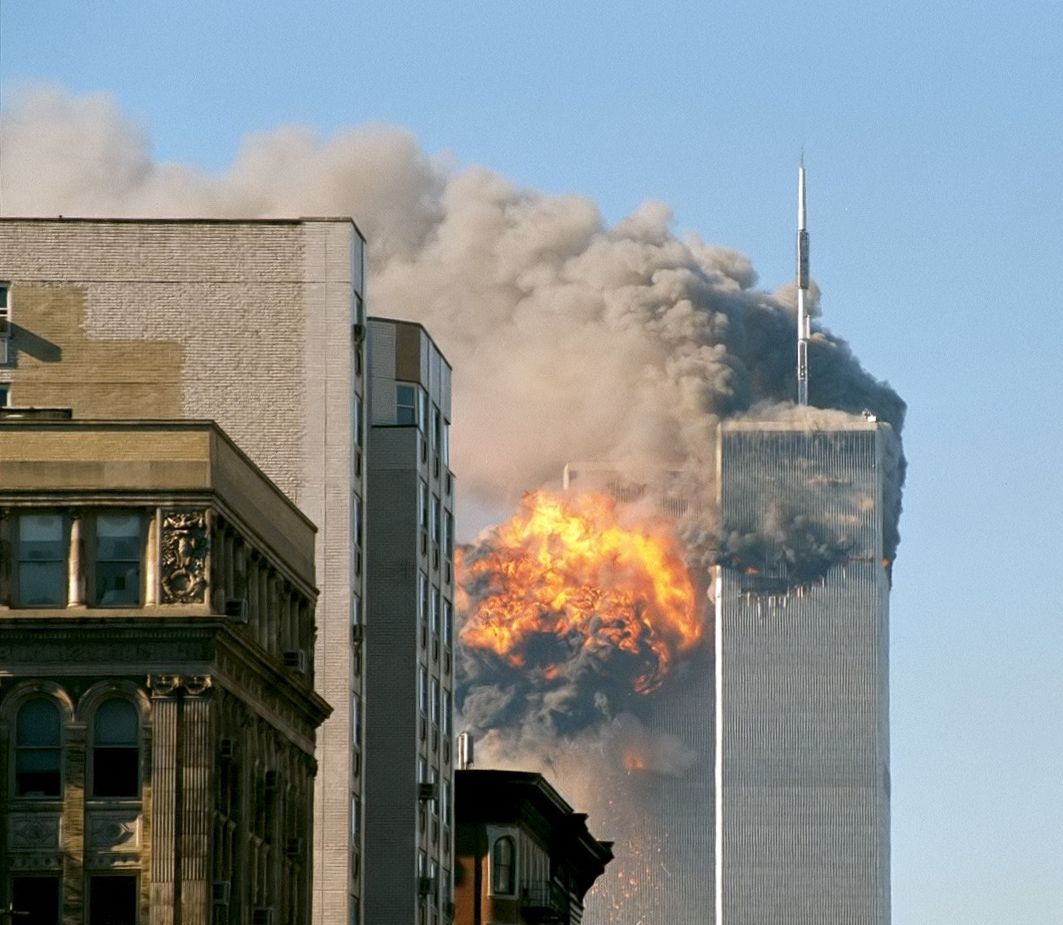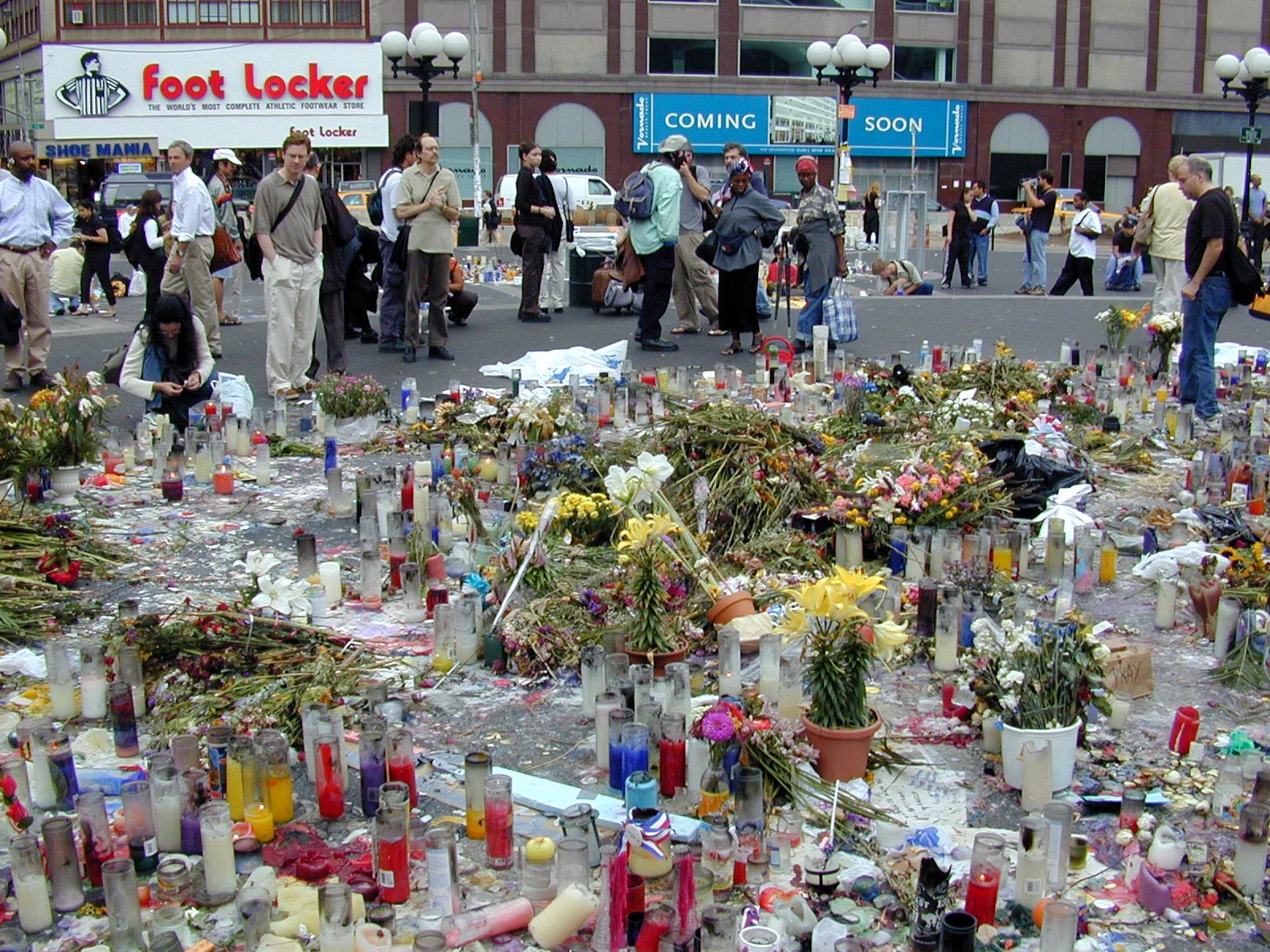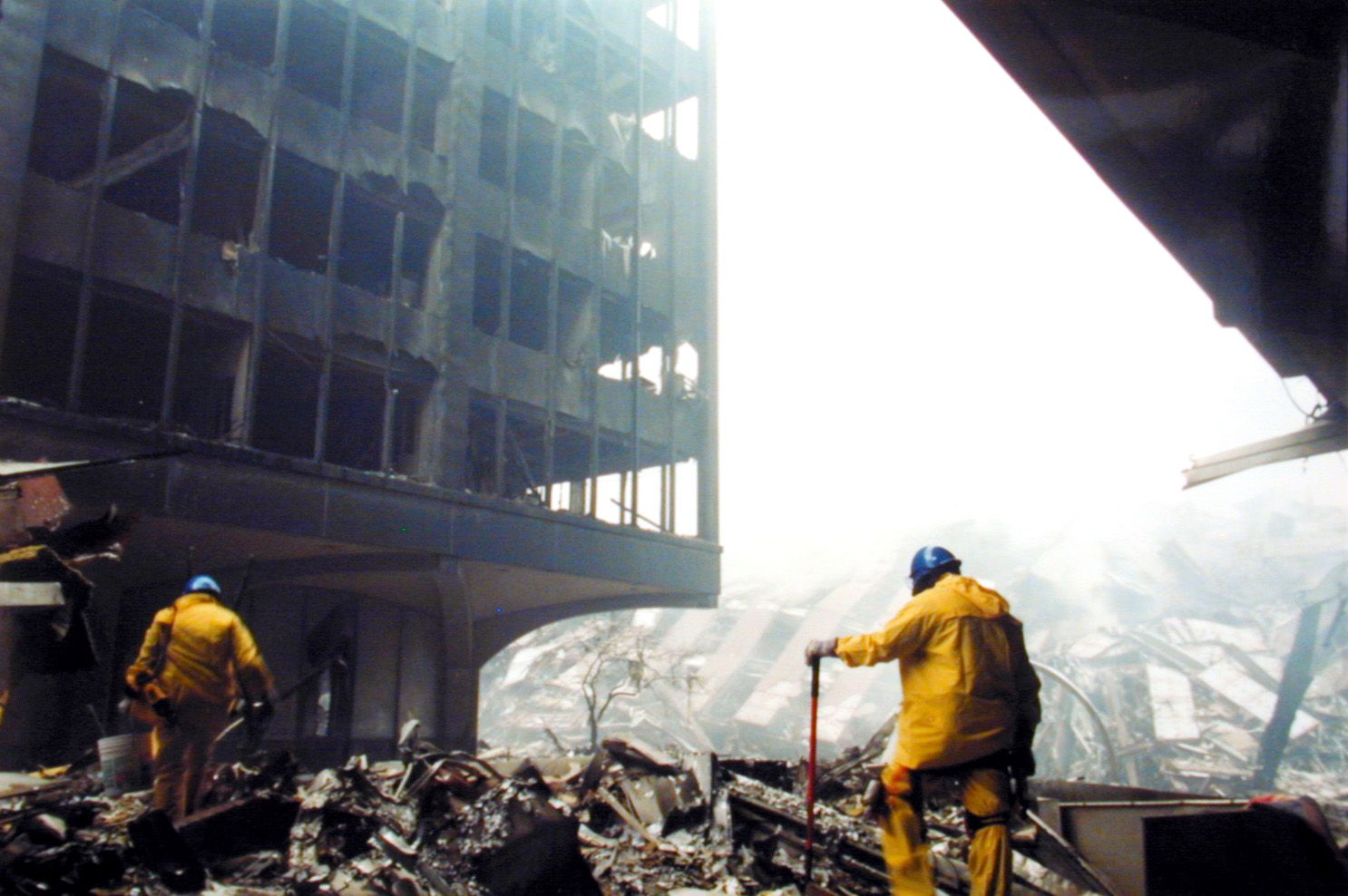As I drove to work on the morning of September 11, 2001, little did I know the ramifications that would arise from a startling event at 14 minutes before 8 a.m. in New Orleans. Listening to Walton and Johnson in my car, I learned of the Boeing 767, which shockingly hit the North Tower of the World Trade Center. Details were sparse. Some pundits had wondered if it was an accident…perhaps pilot error. Just over 15 minutes later, the situation would become a lot clearer and certainly more severe. A second Boeing passenger plane struck the South Tower. It was then that everyone knew this was an act of terror. Our bewilderment turned to horror when the towers began to fall. My coworkers and I rallied around my desk radio, still listening to the Radio Gawds. Co-host Steve Johnson never once broke character.

We soon learned about the Islamic hijackers, how they had entered flight school, and spent their last night on Earth at a strip club. I remember the face of the leader, Mohamed Atta, a Saudi who looked like the Devil incarnate. The terrorists had hijacked four different planes, also hitting the Pentagon and a field in Pennsylvania. That last point of attack was unplanned—the brave souls on United 93 banded together to make sure that the only people who would perish that day were themselves and the villainous attackers. "Let's Roll" became a rallying cry. I had read about the terrorists being armed with box cutters, and, as a warehouse worker, I told anyone who would listen that I would have acted just as flight 93 had. Was it truthful or just hubris?

I, like many other New Orleanians, spent the next few nights soaking up details of these tragedies. I saw the videos of people jumping to their deaths, chosen as the alternative to being burned alive. We all became New Yorkers. Churches would thrive with record attendances. There was something of a brother's bond amongst Americans, and political differences became less noticeable. I rallied around President George W. Bush and his retaliative measures against the murderous Taliban in Afghanistan. After all, they were giving sanctuary to the man responsible for the attacks—the leader of Al-Qaeda, Osama Bin Laden.
Then things started to break down into division. Oddly, 43 also waged a campaign against Saddam Hussein's Iraq, which seemed very much like a diversionary tactic. There were so many questions that arose from these decisions, not the least of which would materialize into a 2004 film (Fahrenheit 9/11) by everyone's favorite Bush-hater—Michael Moore. Did he really not go after Saudi Arabia because of their abundance of oil and a friendship with the royal family? After all, most of the attackers were from that country.
With conservative hosts like the late Rush Limbaugh and Bill O'Reilly, as well as liberal Chris Matthews of MSNBC, cable news became bigger than primetime. NATO-member France publicly refused to become involved in a skirmish that targeted Iraq. In response, some Republican politicians absurdly decided to rename things that were "French." We were forced to order freedom fries, make freedom toast, pick up a loaf of freedom bread at the grocery store…you get the idea. The Dixie Chicks were demonized for disparaging G.W. onstage and their sales and exposure suffered drastically as a result. In 2020, they quietly renamed themselves The Chicks (and no one cared).
Speaking of music, 9/11 changed the way we listened to it. Clear Channel (now iHeartMedia) sent out a "memorandum" advising over 160 songs (plus anything by Rage Against the Machine) not be played on any of their stations. Songs about loss, violence, airplanes, heaven, hell, even Louis Armstrong's gorgeous "What a Wonderful World" was banned. This was obviously before the days of the smartphone and streaming apps. Today, I feel fortunate to pay tribute on Spotify with my "Clear Channel Memorandum" playlist. It's an unbelievably good collection of music.

Yes, this was a confusing time. I entered a banned book phase and purchased a Bantam Classics edition of the Quran just because it was controversial. We saw the degradation of the detainees in Abu Ghraib, where their holy book was flushed down the toilet. Tensions were high. I changed political parties several times to match the politicians that I thought were right and had made the most sense. With the introduction of The Patriot Act, it certainly seemed as if some aspects of our democracy were crumbling right before our eyes.
There was an undeniable increase in hatred. We hated Osama Bin Laden and the terrorists that destroyed our way of life. Some hated individuals just because their skin was a similar color to the terrorists. I journeyed to Seattle the following summer with a very good friend of mine, who is of Indian heritage. In the airports, there were people who watched him like a hawk. The newly commissioned TSA stopped him for random baggage checks several times. I had to throw away a bottle of fancy aftershave that exceeded the 3.4 oz. limit for toiletries. We repeated the trip four years later. This time there were no apprehensive looks given towards my friend, and his skin tone never did change.
By that time, French fries were back in style and Iraq's weapons of mass destruction were still never found. Contrary to the popular meme on social media, we did forget…somewhat. 20 years later, Bin Laden has been dead for a decade and U.S. troops are just now being withdrawn from Afghanistan. Foreign terrorists have been replaced by domestic ones. There often seems to be more hate than ever. With the political landscape, it's painfully obvious that we won't be coming together as a country anytime soon. But that short period of brotherhood, in those first few weeks after 9/11, is something I choose to Never Forget.

